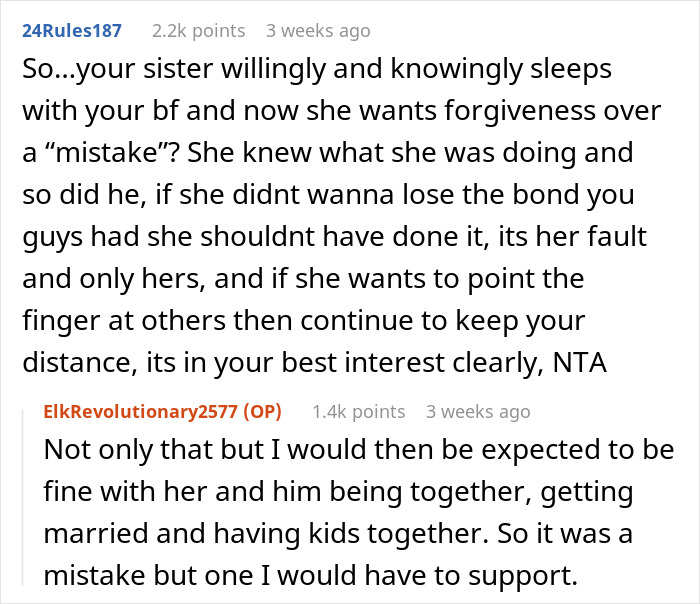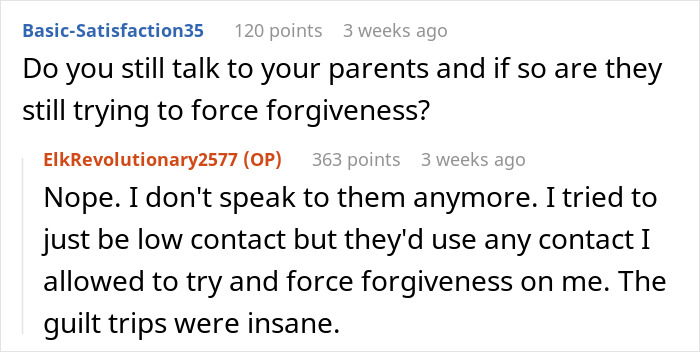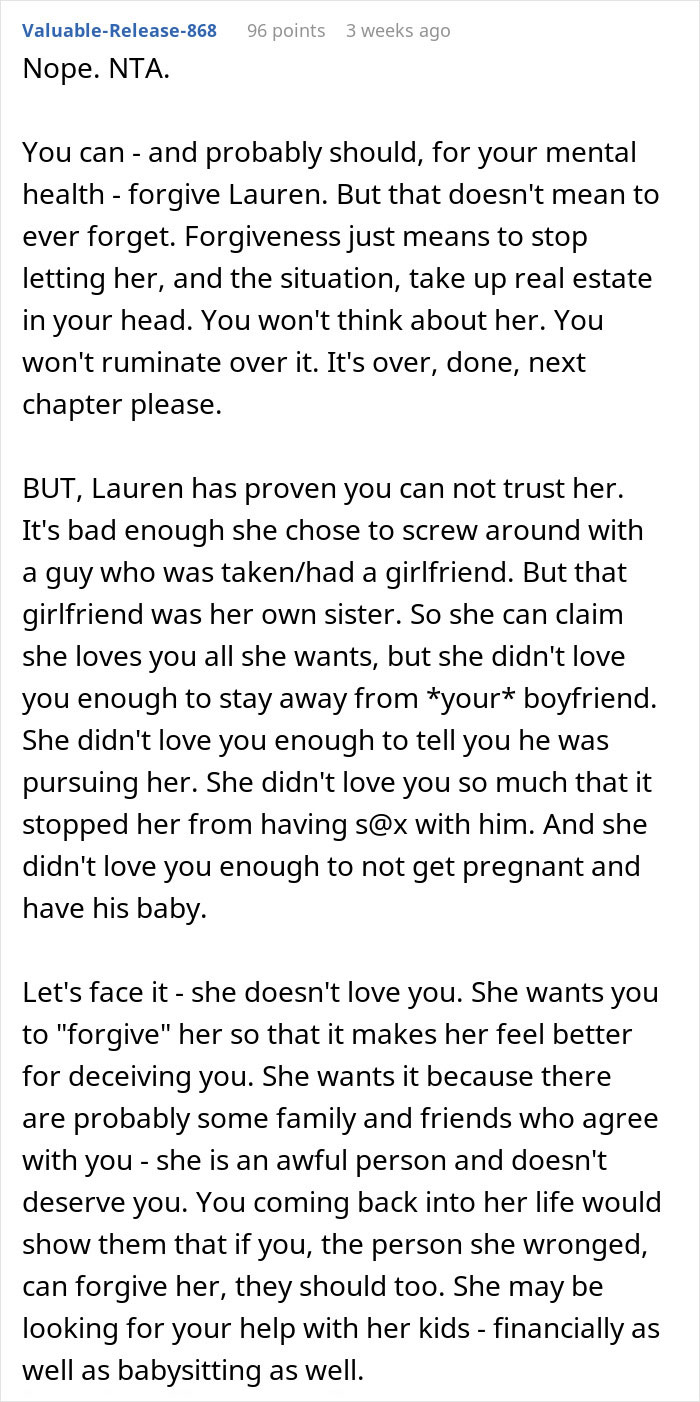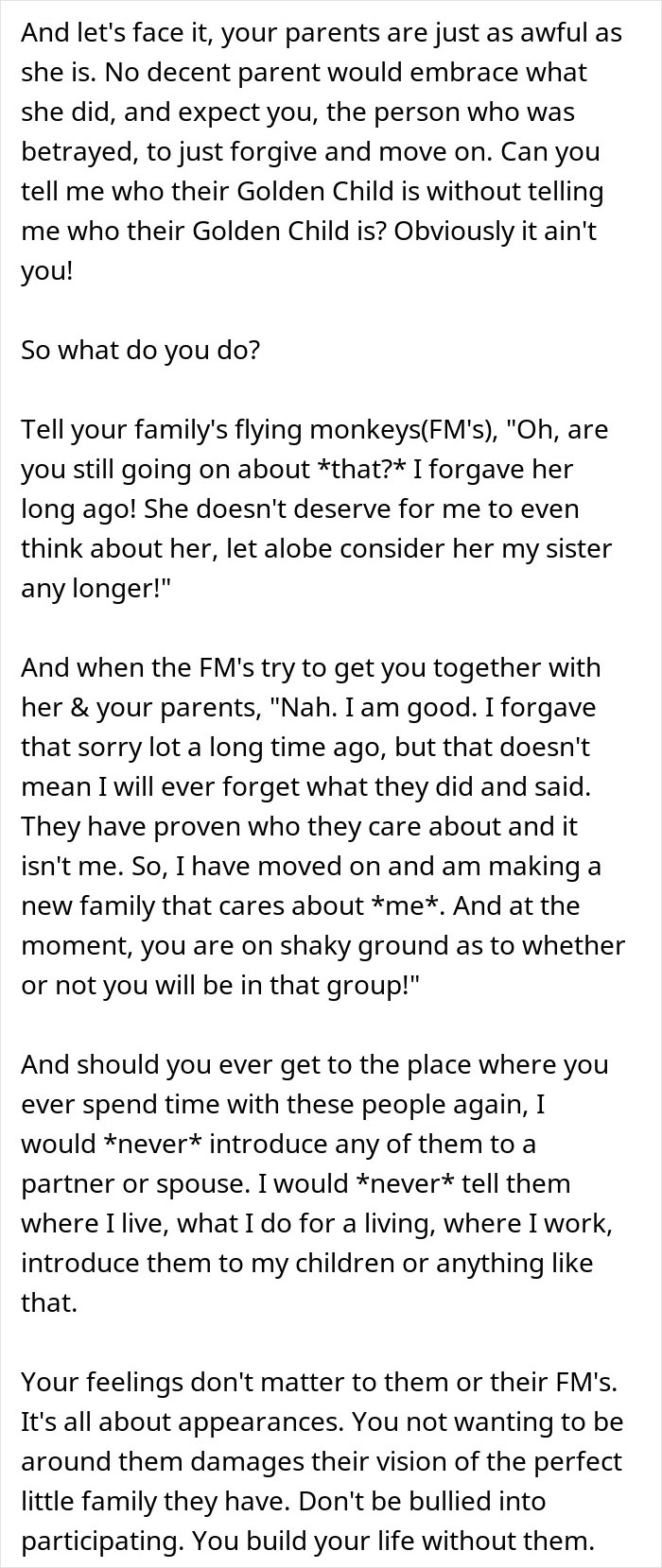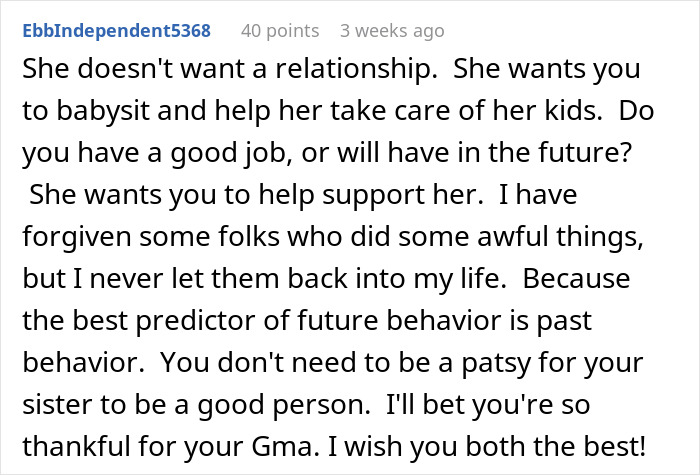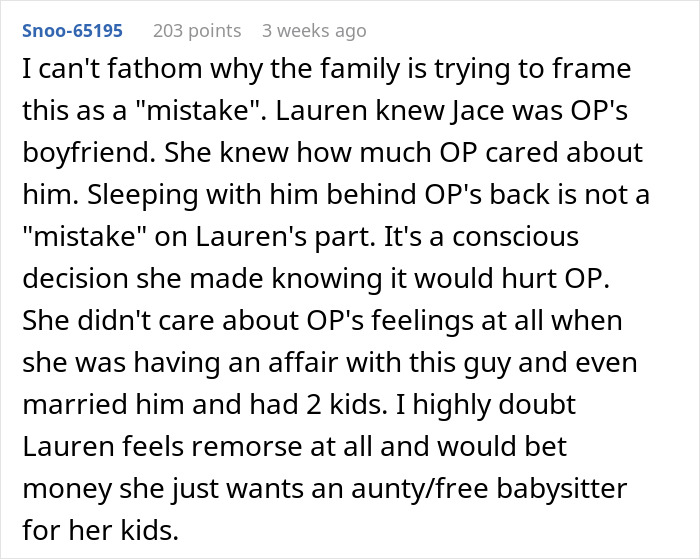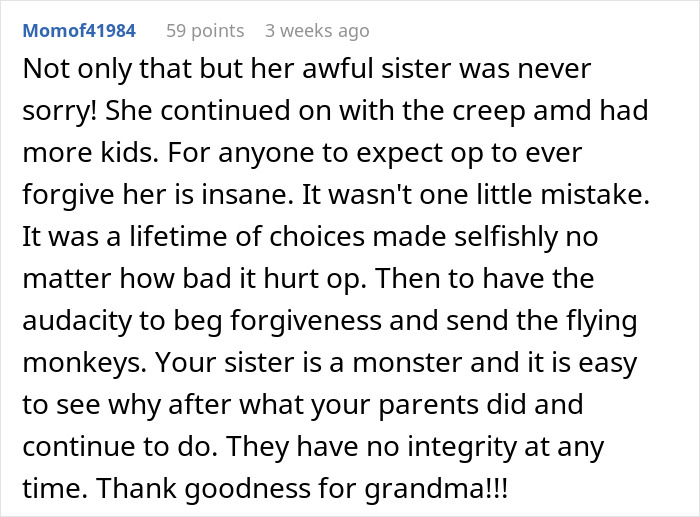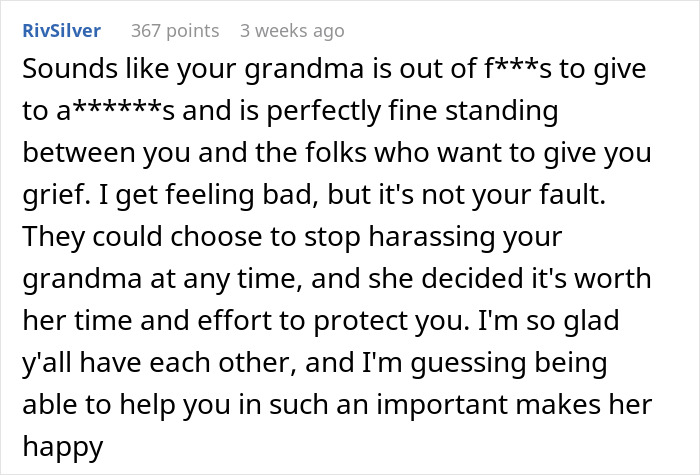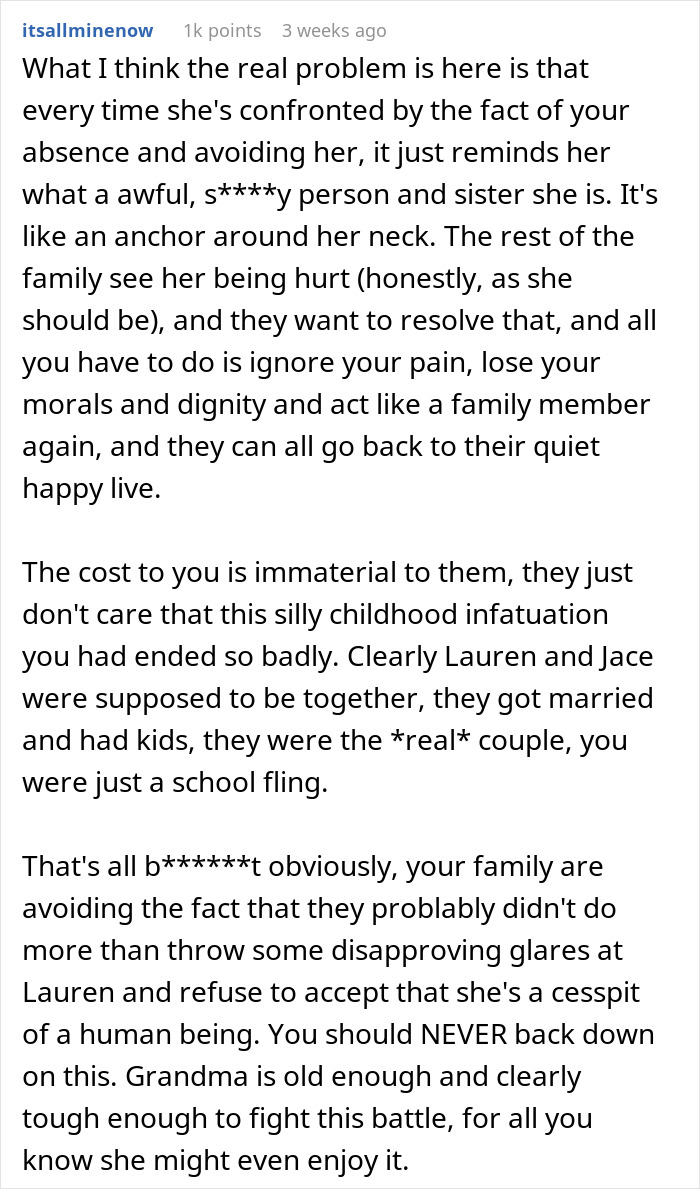In our minds, family is supposed to have our backs no matter what. So, when they break our trust, it can feel more devastating than any betrayal imaginable. It shakes up our sense of security and everything we know about love and loyalty, which makes recovering from it far from easy.
This woman downright refused to forgive and move on from her sister’s betrayal despite many family’s attempts to convince her otherwise. She went no contact with most of them, including her sibling, as she doesn’t think she could trust her ever again or those who support her ‘mistake.’
Scroll down to find the full story and conversation with a registered clinical counsellor and trauma recovery coach, Karen Bieman, certified clinical trauma professional Dr. Jill Manning, LMFT, and certified trauma recovery coach Erin McCole Cupp, who kindly agreed to tell us more about betrayal.
Family betrayal is one of the most devastating

Image credits: unsplash (not the actual photo)
For this woman it was so earth-shattering she downright refuses to ever forgive her sister
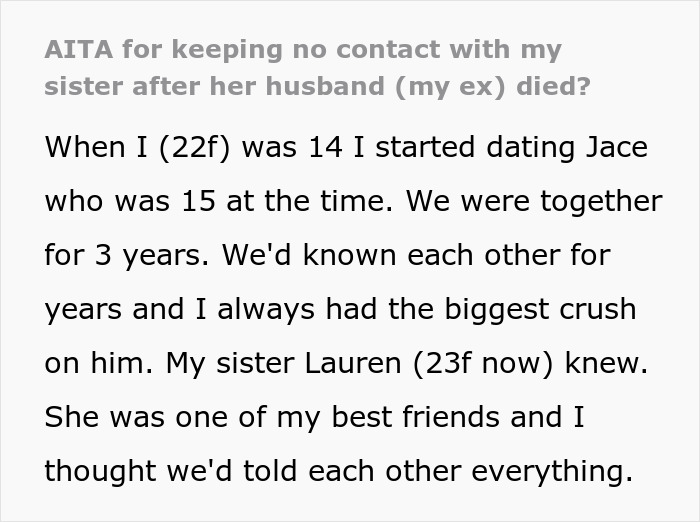

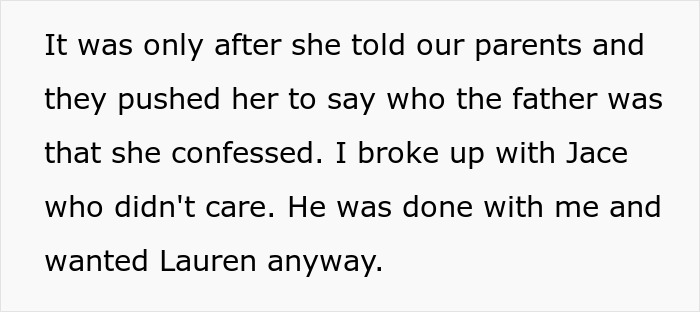

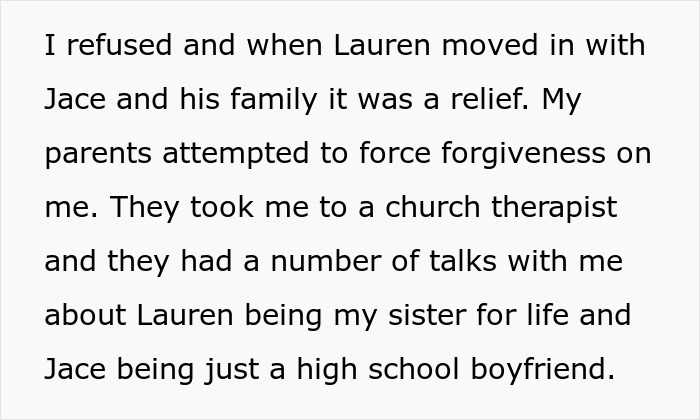

Image credits: freepik (not the actual photo)
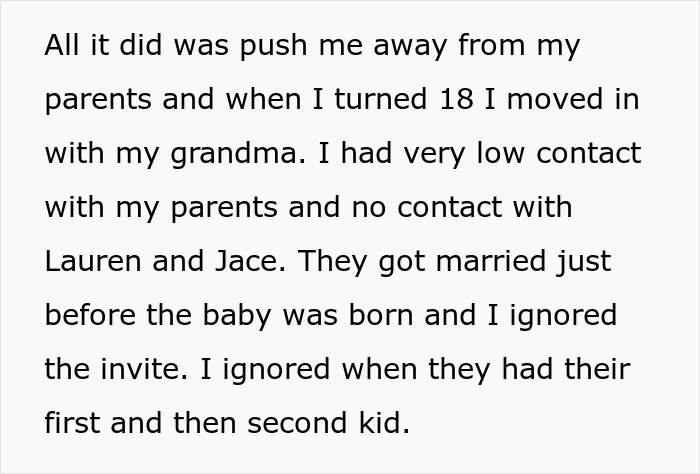
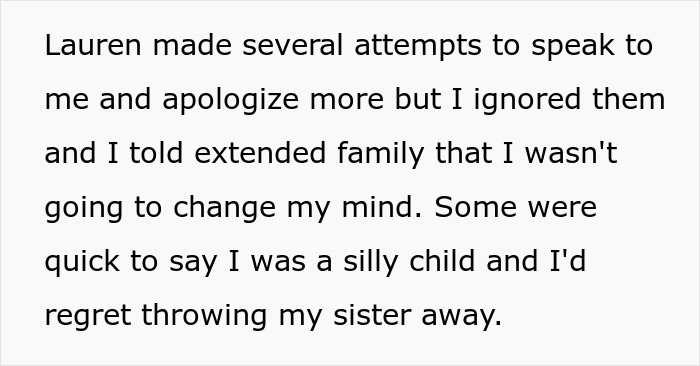
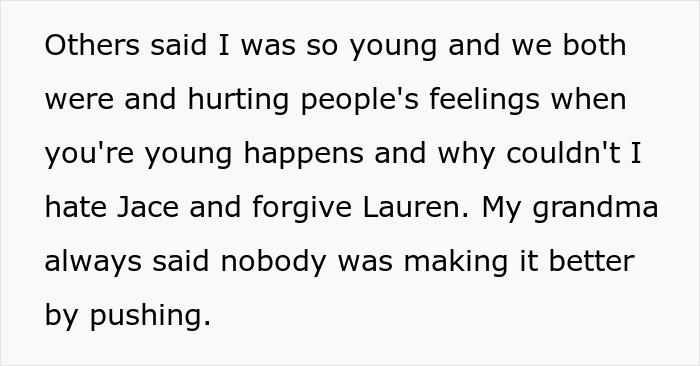
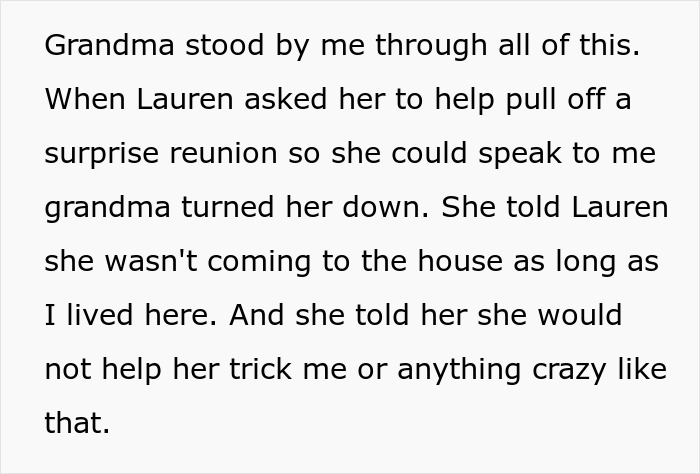
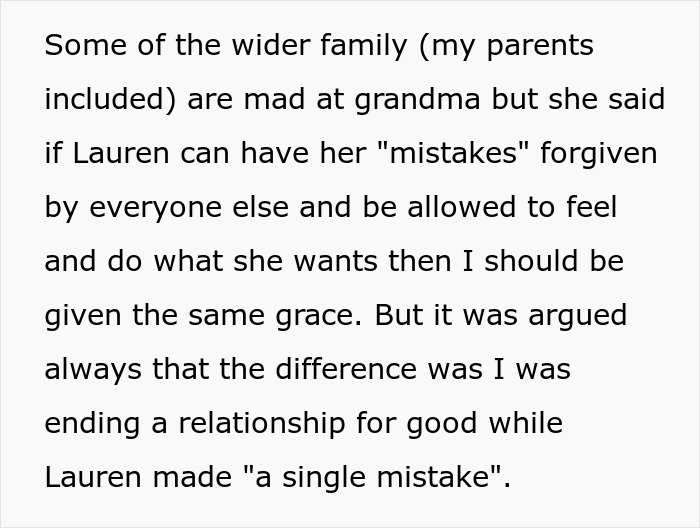
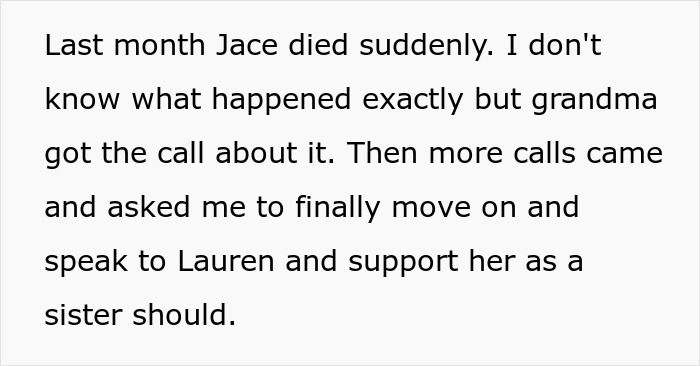

Image credits: freepik (not the actual photo)
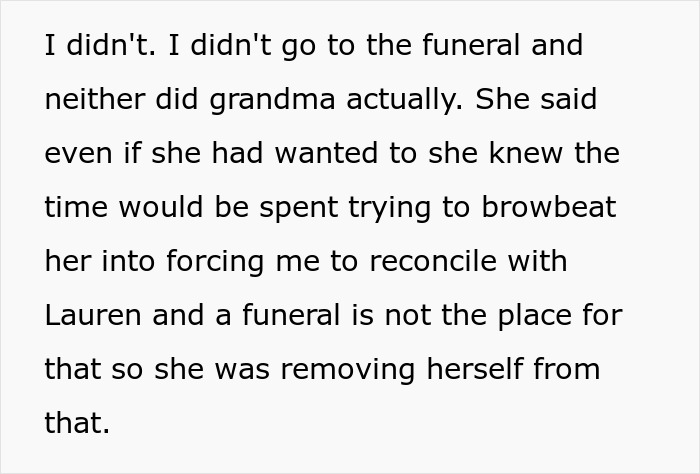
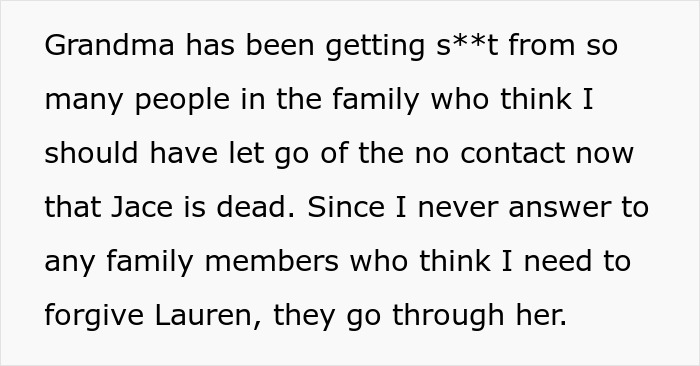


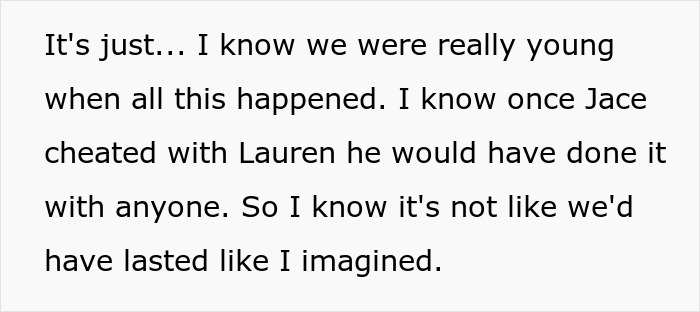
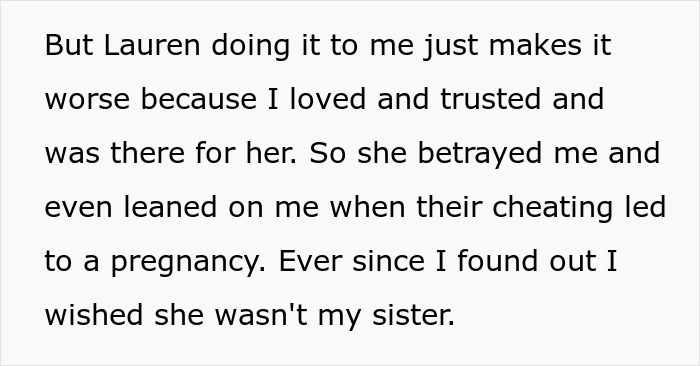
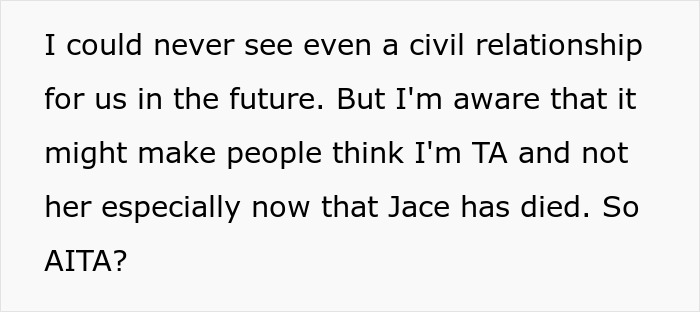
Image credits: ElkRevolutionary2577
Betrayal can cause significant emotional distress and even turn into betrayal trauma

Image credits: freepik (not the actual photo)
“Betrayal occurs when someone we rely on, or are significantly attached to, violates our trust in a critical way. It’s not just a broken promise—it strikes at the core of our emotional and relational security. Examples include discovering infidelity, sexual addiction, financial deceit, or abuse by a trusted figure,” explains certified clinical trauma professional Dr. Jill Manning, LMFT.
“The effects of betrayal can be profound and disorienting. Because the violation comes from someone within our inner circle—someone we counted on—betrayal trauma can trigger intense distress. Common symptoms include anxiety, hypervigilance, difficulty regulating emotions, disrupted sleep or appetite, and a deep sense of relational insecurity,” she further explains.
“What makes betrayal trauma uniquely challenging is that the very relationship we might typically turn to for comfort during distress is now the source of our pain. This creates a sense of vulnerability and confusion that fear-based traumas, like car accidents or natural disasters, typically do not evoke.”
Family betrayal, in particular, has a bigger impact on a person than any other kind of relationship. “Family and romantic partnerships are what are called “high-stakes relationships.” Children need parents to survive. Romantic partners need each other to survive the world they’re building together. When those survival bonds are broken through the deception of betrayal, that cuts far deeper than, say, the betrayal of a politician or a religious institution-but those types of betrayal cause their own harm as well,” says certified trauma recovery coach Erin McCole Cupp.
“Family is meant to be your innermost circle of trust – the people you ideally feel most safe with. So, to be betrayed by the people you thought you could trust more than anyone else makes it hard to trust people in the outer circles of life. If someone is betrayed by an acquaintance, they can turn to family for support. This obviously can’t happen if they are betrayed by a family member,” adds registered clinical counsellor and trauma recovery coach Karen Bieman.
“The starting point for healing from betrayal trauma is establishing safety”

Image credits: unsplash (not the actual photo)
Healing from betrayal is possible, but it’s not an easy process. “The starting point for healing from betrayal trauma is establishing safety. This includes setting clear boundaries, engaging in meaningful self-care, and learning to regulate one’s nervous system to create an internal sense of calm and stability,” says Dr. Manning.
“Healing also involves reclaiming agency, seeking trauma-informed support, and processing the impact of the betrayal at emotional, cognitive, and even spiritual levels. It’s not a linear path, and it requires patience and persistence, but healing is absolutely possible.”
Nearing the end of the healing journey, there might come a time for forgiveness or reconciliation, but it’s important not to rush into it. “Forgiveness means different things to different people. Unfortunately, betrayed people are often pressured to forgive, which can be a form of spiritual bypassing,” says Bieman.
“Although forgiveness can be a pathway to healing, many people find it more helpful to work on releasing resentment, rather than granting forgiveness. It is important to take whatever time is necessary to work through the feelings, as there is no timeline for forgiveness. It’s also important to note that forgiveness does not mean condoning the behaviour, and it does not require restitution of the relationship.”
However, in order to restore the relationship, the person who did something wrong must earn back the trust of the person they wronged, says Cupp. “The wronged party then has the right to decide whether or not to trust again. I definitely don’t think reconciliation is necessary for a betrayed person to build a beautiful life without the betrayer’s interference.”
“The betrayed person is under no obligation to maintain contact with a person who has broken their trust,” agrees Bieman. “Sometimes, the safest choice is distance. If contact continues, it’s important to remember that trust must be earned through consistent behaviour over time. Healthy contact requires healthy boundaries, and the betrayer needs to accept that loss of trust is a consequence of the betrayal. They need to give the betrayed person as long as they need to heal, and to accept that full restoration of trust may never be possible. The betrayed person is free to choose contact, no contact, or limited contact, depending on what is right for them,” she concludes.
Readers seem to support the original poster

